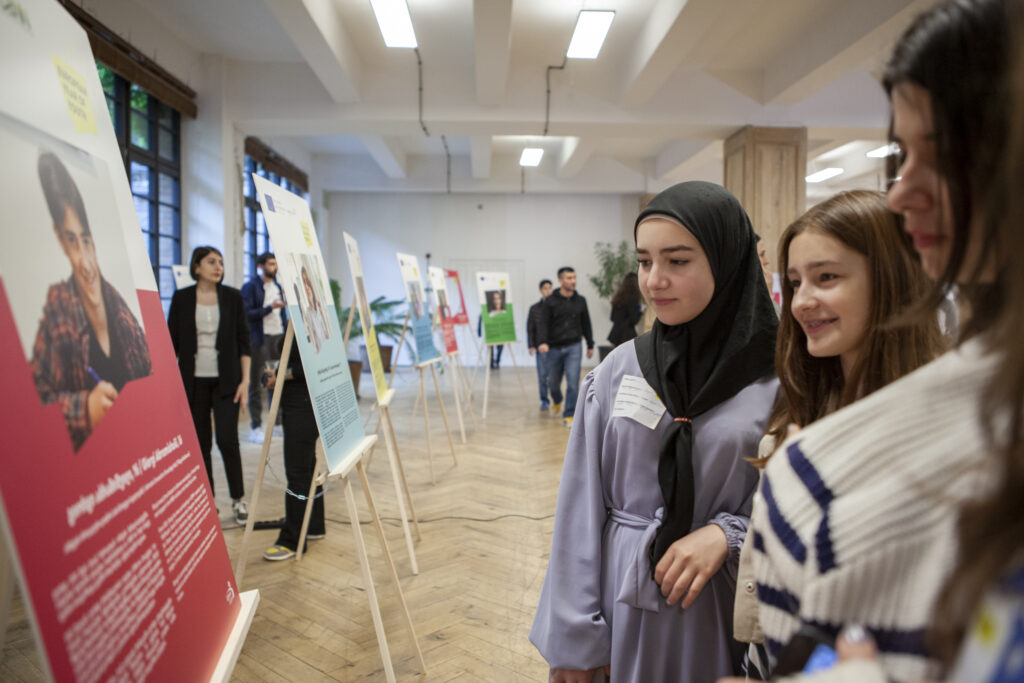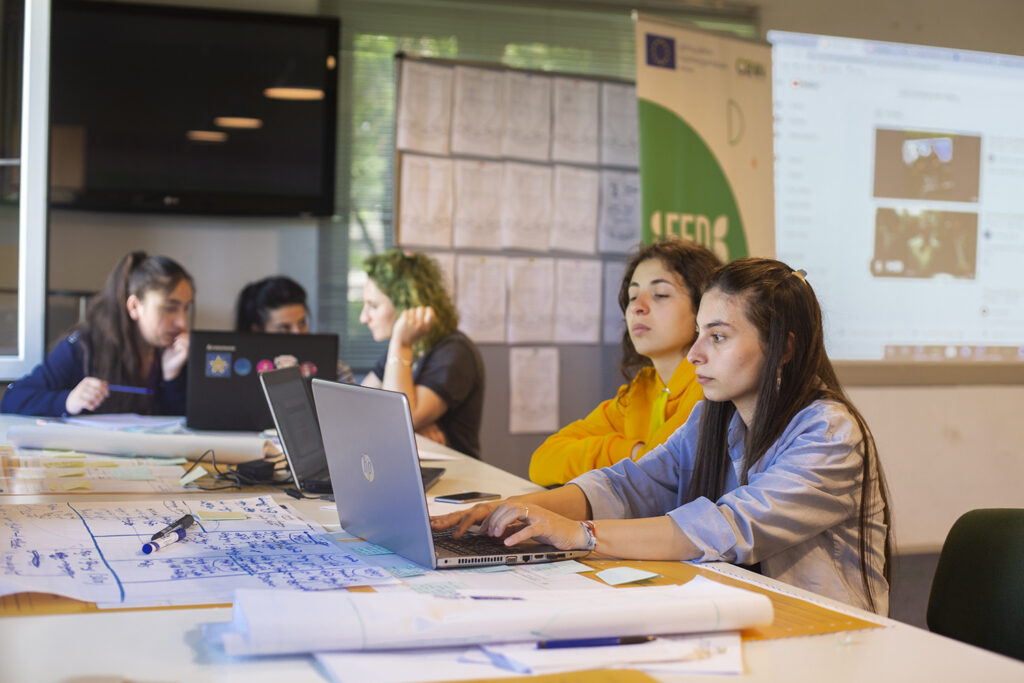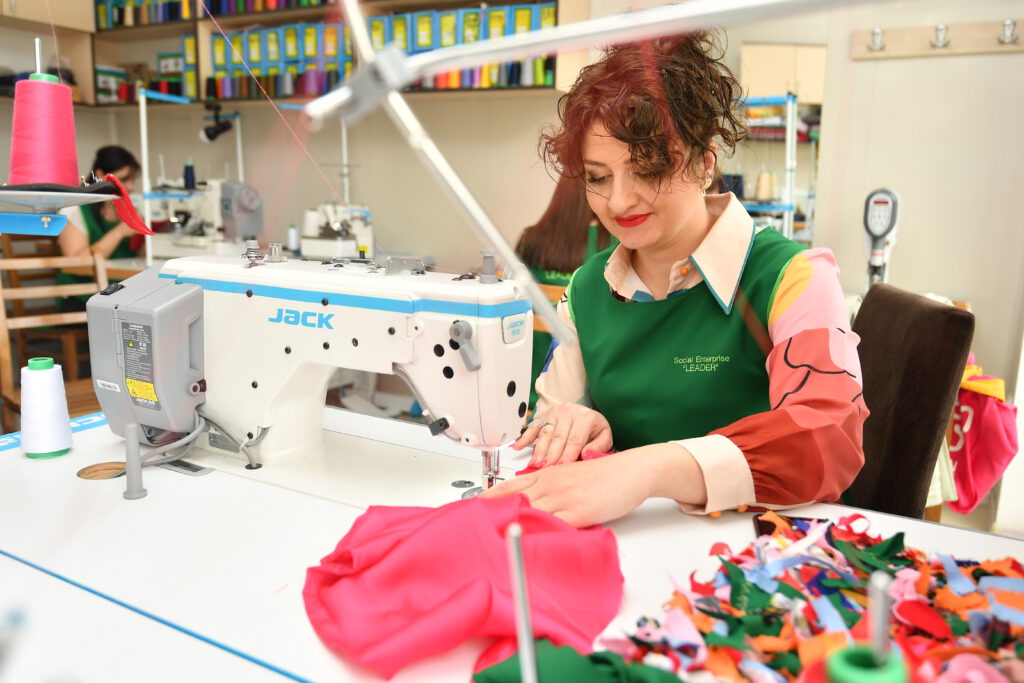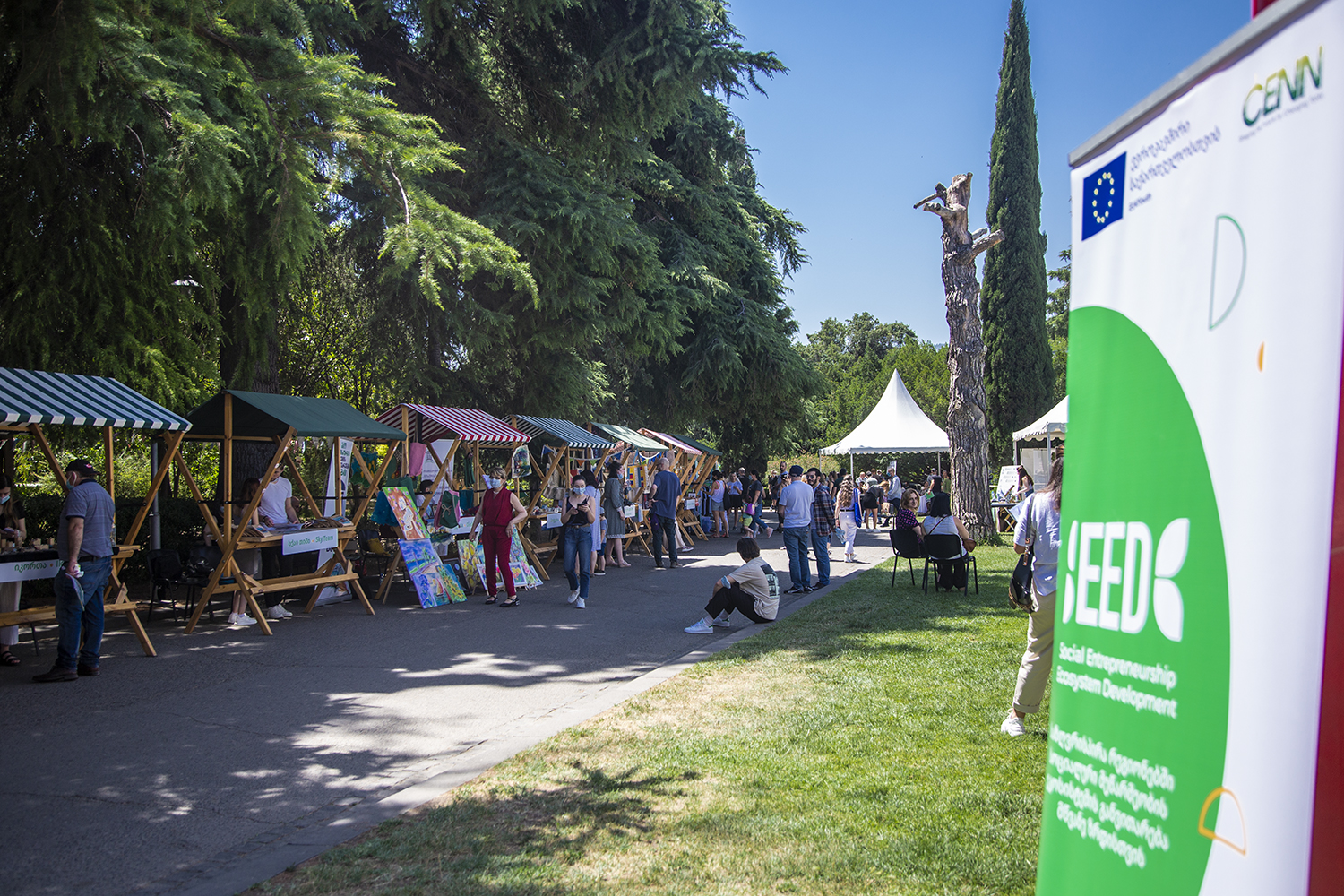Duration: 2019-2022
Geographic area: Georgia – Gori, Ninotsminda and Akhmeta municipalities; Armenia – Lori, Tavush and Shirak regions
Implemented by: CENN, Green Lane NGO, KRDF
Donor: European Union, EU4Youth Programme
The SEED project created favourable conditions for social entrepreneurship (SE) and green innovation (GI) in Georgia and Armenia and fostered the potential of disadvantaged young people from borderline rural communities in these fields. The project regarded social entrepreneurship as a means to contribute to wider social and environmental benefits for local communities in the target regions of Armenia and Georgia and used SE as a pathway to successful transition to work for disadvantaged rural youth.
SEED project had four overarching outcomes: 1. Establishment of multi-stakeholder platforms (Caucasus, Geo & Arm, and sub-nationals) for enabling environment for SE&GI of youth in the South Caucasus region; 2. Empowerment of disadvantaged youth from target regions of Georgia and Armenia; 3. Establishment of social and green enterprises in the South Caucasus region; and 4. Extensive communication and awareness raising campaigns regarding social and green entrepreneurship.

Youth Development, Entrepreneurship and Leadership
The project contributed to the youth (14-29) entrepreneurial development in Georgia and Armenia through various programs and activities. Within the framework of the SEED project, 27 social and green enterprises were established as a result of Caucasus Social Innovation Competitions in Georgia and Armenia. The catalogue of enterprises can be found here. It should also be noted that as a result of pre-acceleration and acceleration program – GREENcubator, more than 200 young beneficiaries gained knowledge and skills to obtain SE funding from the specially-created Youth Opportunity Fund.
In addition, 6 Rural Innovation Knowledge Hubs were created in the target regions of the project. Hubs created free co-working and development spaces for local and vulnerable communities. With the relentless efforts of the Hubs, more than 1,000 beneficiaries were mobilized in the format of environmental and youth campaigns, capacity development activities and non-formal education.
The project also put a significant emphasis on youth education via various capacity development activities, including, trainings and workshops on the topics of circular economy, climate change, entrepreneurship, social entrepreneurship, agriculture, renewable energy and smart cities and villages. As a result, more than 3,000 young beneficiaries were trained and empowered.
Furthermore, as a result of 2 JobFests in Georgia, more than 400 young job seekers attended the career orientation and 22 were employed.

Strengthening
of education
systems
The project established cooperation with Georgian and Armenian universities to promote the inclusion of SE&GI topics into the national university curricula. As a result, Green Entrepreneurship course was added to the Bachelor program of the Business and Technology faculty of Ilia State University (Iliauni), a leading educational institution in Georgia. It was an important step to raise environmental awareness and share in-depth knowledge with youth about green social entrepreneurship.
In Armenia, a Sustainable Agriculture Master’s Program was launched in Armenia at Armenian National Agrarian University. The program aims to qualify, educate and in the long-term, connect professionals who are willing to find innovative and inclusive solutions for making agriculture more sustainable, thus overcoming food security, climate change and similar challenges. To this end, the program participants started exploring in detail the three main dimensions of sustainable development and innovative approaches in farming technologies.
In addition to this, entrepreneurship module was added to the Circular Economy Course introduced by CENN at ISET in Georgia.

Circular economy
and resource
efficiency
As a result of GREENcubator acceleration program, the SEED project mentored and support the establishment of 4 youth-led social and green enterprises promoting circular economy and resource efficiency in rural regions of Georgia:
“CHAMPY” by FIT company, Gori municipality – healthy snack industry established by 3 students that produces apple chips using an innovative drying method. The mission of “Champy” is to support economic development of the borderline region and to promote zero-waste practices through the production of innovative healthy snacks. To fulfil its mission, the company plans to work in several priority areas, including empowerment of women and youth, and promotion of zero-waste and zero-impact production processes.
“Leader”, Gori municipality – sewing social enterprise, the first in the region to develop a textile waste recycling strategy. Along with the management of textile waste, the company envisages offering vocational training in dressmaking to young women under 29 from different vulnerable groups (socially vulnerable persons, IDPs, PwDs, victims of violence, etc.) and their further employment;
“Mende”, Akhmeta municipality – startup workshop uses wood and metal as input materials. Within the framework of the project, an enterprise was established to manufacture household items – tables, clocks, interior design items and other accessories – from wood waste collected from wood enterprises operating in the region;
“Bamane”, Gori municipality – sewing startup that use textile waste as an input material and offers a variety of products to its customers.
